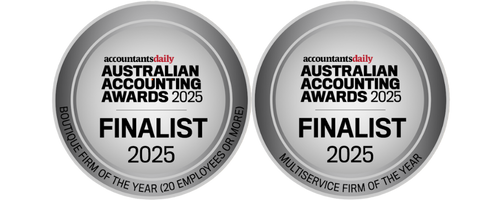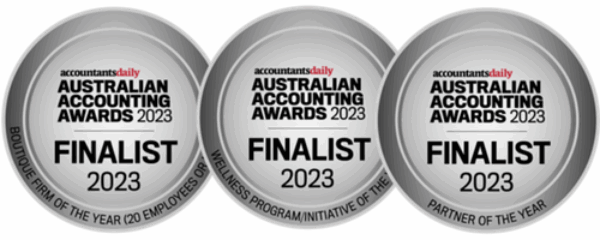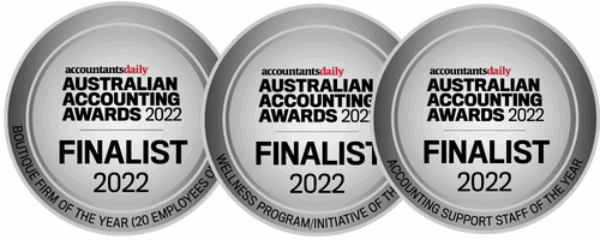Accounting for doctors involves unique financial challenges that, if not managed correctly, can result in costly mistakes. Whether it’s tax inefficiencies or missing out on key deductions, avoiding these pitfalls can make a real difference to your financial success. Below are some of the most common mistakes that we have seen doctors make, along with some strategies to help you navigate the complexities of accounting for doctors.
Accounting for Doctors Mistake 1: Keeping Personal and Business Finances Together
One common mistake doctors can make is to blend their personal and business finances. When you don’t clearly separate the two, it can lead to confusion during tax time and cause you to miss important deductions. To streamline your finances, it’s a good idea to maintain separate bank accounts and credit cards for your practice and personal use. This will help you track business expenses, such as vehicles, home office costs, and equipment, in accordance with ATO guidelines. This can not only maximise your tax deductions but also ensure that your financial records are well organised, saving time at the end of the financial year.
Accounting for Doctors Mistake 2: Overlooking Depreciation on Medical Equipment
As a doctor, you are likely to invest heavily in medical equipment, but overlooking depreciation can leave you paying more tax than necessary. Failing to account for depreciation on expensive equipment or property may increase your taxable income, ultimately costing you more. To avoid this, make sure you depreciate all eligible equipment according to ATO tax depreciation schedules. When it comes to accounting for doctors, taking advantage of immediate asset write-offs where applicable can provide some tax relief, reducing your overall liability.
Accounting for Doctors Mistake 3: Failing to Track All Deductible Expenses
Many doctors miss out on valuable tax deductions simply because they don’t track their expenses properly. Whether it’s professional development, medical equipment, or work-related travel, keeping detailed records of all potential deductible expenses is critical in accounting for doctors. Using accounting software or apps can help automate the process, ensuring that you capture every deductible item. Stay informed on what qualifies as a deductible under the ATO, including Continuing Professional Development (CPD) costs, so you can maximise your tax benefits.
Accounting for Doctors Mistake 4: Not Structuring Your Practice for Tax Efficiency
Choosing the wrong business structure can mean paying more tax than necessary. Whether you structure your private practice as a sole trader, partnership, trust, or company can have significant tax implications. Consulting a specialist accountant for doctors can help you assess whether a trust or company structure is most beneficial for you, potentially allowing for income splitting or tax concessions under ATO guidelines. This proactive approach could save you from paying excess taxes in the long run.
Accounting for Doctors Mistake 5: Neglecting Your Superannuation Contributions
It’s easy to overlook contributing to your own superannuation account, but doing so can mean missing out on significant tax advantages – not to mention savings for your retirement future. By not making regular contributions to your superannuation fund, you could lose out on tax concessions that might lower your taxable income. Aim to maximise your concessional (before-tax) contributions each financial year. This will likely help to reduce your overall tax bill while helping secure your financial future.
Accounting for Doctors Mistake 6: Mismanaging GST and BAS Reporting
If you run your own private medical practice, managing your GST and Business Activity Statements (BAS) correctly is important. Failing to charge GST correctly on taxable medical goods and services, or lodging your BAS incorrectly or late, can result in penalties from the ATO. Use accounting software that integrates GST tracking to streamline the process and consider working with a bookkeeper specialising in accounting for doctors.
Accounting for Doctors Mistake 7: Not Planning for Income Tax and PAYG
It’s easy to underestimate your tax obligations, particularly with PAYG (Pay As You Go) instalments. Not setting aside enough funds for your income tax can leave you scrambling to meet tax payments deadlines at the end of the financial year. A good rule of thumb is to set aside a portion of your income each month to cover upcoming tax bills. Working with a specialised bookkeeper or accountant for doctors can help you estimate your PAYG instalments accurately, ensuring you’re prepared and avoiding any unpleasant surprises.
Accounting for Doctors Mistake 8: Poor Cash Flow Management
Strong revenue doesn’t always equate to healthy cash flow. For doctors and other medical professionals, failing to monitor cash flow can lead to shortfalls, especially during slower periods. Effective cash flow management is essential for any practice, and accounting for doctors means implementing cash flow forecasting to understand the timing of income and expenses. Maintaining a buffer for unexpected costs or delayed payments will help you ensure you can meet financial obligations without stress.
Accounting for Doctors Mistake 9: Payroll Compliance
If you employ staff, payroll compliance is a critical aspect of running your practice. Failing to correctly manage employee entitlements, including superannuation contributions and PAYG withholding, can result in penalties from the ATO. By using Single Touch Payroll (STP) compliant software, you can ensure payroll is managed efficiently, and all entitlements are calculated and paid on time.
Accounting for Doctors Mistake 10: Falling Behind on Tax Law Changes
Tax laws in Australia are constantly evolving, and keeping up with these changes is essential. Many doctors miss out on tax savings or face compliance issues because they aren’t aware of new tax laws affecting their practice. Partnering with a specialist accountant for doctors who regularly monitors ATO updates, such as changes to fringe benefits tax (FBT) for private vehicle use or updates to Medicare Levy Surcharge thresholds, will help you stay informed.
Accounting for Doctors Mistake 11: Not Seeking Professional Financial Advice
While you may be an expert in healthcare, managing your own finances can be challenging. Many doctors attempt to handle their accounting alone, missing out on potential savings or making costly mistakes. Engaging a specialised medical accountant who understands the nuances of accounting for doctors is invaluable. They can help you reduce tax liabilities, optimise your deductions, and ensure full compliance with ATO regulations, allowing you to focus on your practice with peace of mind.
Our team of specialised accountants for doctors is here to help you navigate the complexities of accounting for doctors. Contact us today to discover how we can optimise your financial practices and set you up for long-term success.











